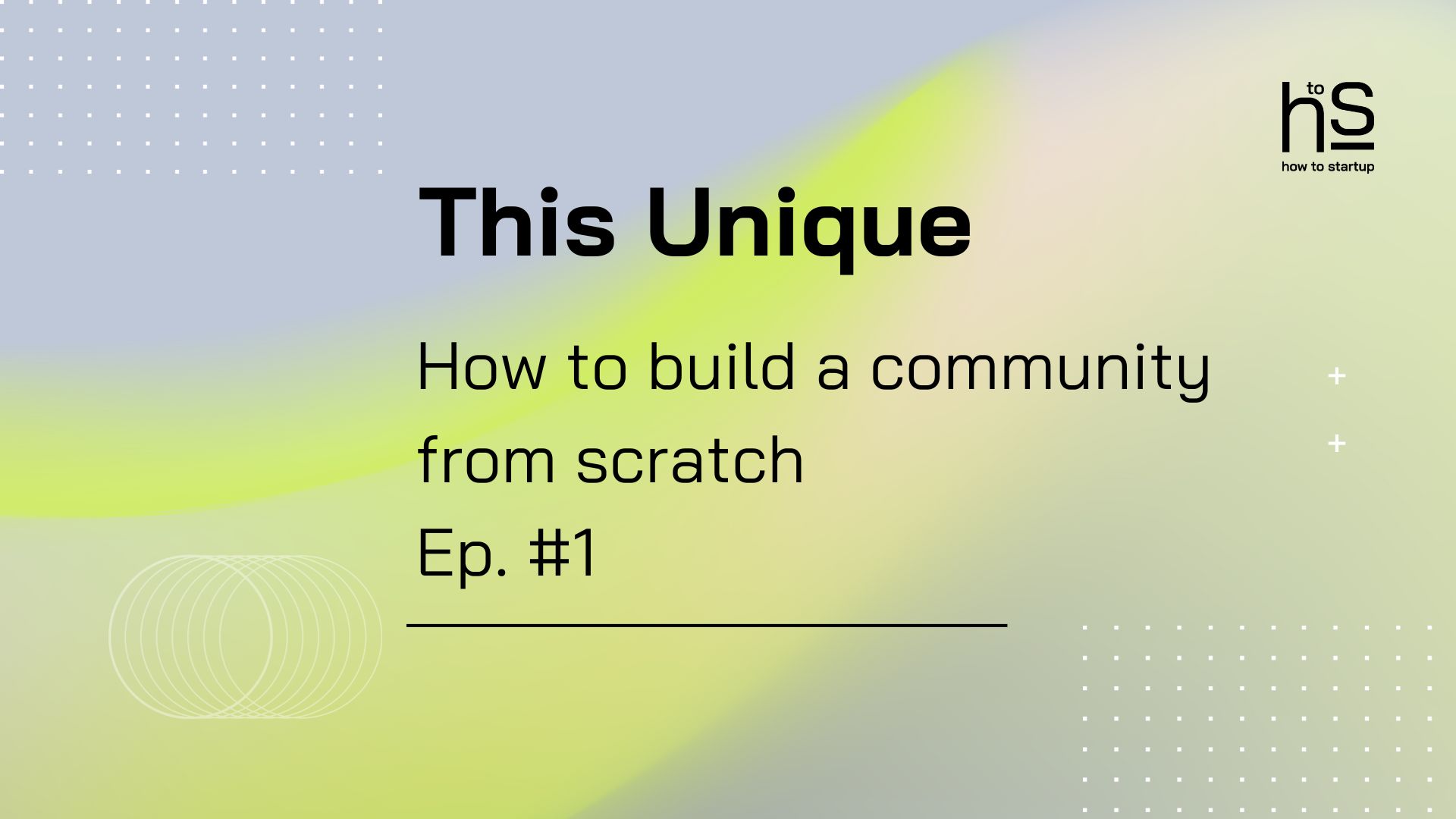Florence, Stadio Franchi, November 19, 2016, 4:00 p.m. Giovanbattista Venditti picks up the oval from Benvenuti and flies in for a try, sending the South African opener, Jantjies, through. It is the overtaking of South Africa, it is the decisive goal for the victory that writes the history of Italian rugby, the first and only one to date for Italy against one of the great national teams of the Southern Hemisphere.
This would be enough to give an inestimable value to a career, if it were not for the fact that for Giovanbattista scoring decisive goals in the victories of the national team is the trademark: in goal in the historic victory against Ireland in the 6 Nations in 2013, in goal in the last victory in the tournament against Scotland in 2015. A victory that has been missing for a long, long time, just as the national team is missing that generation of champions of which Giovanbattista is a full member. After 44 caps and a World Championship with the national team, more than 100 appearances in the Pro 14 with Aironi and Zebre, a season in the Premiership with the Newcastle Falcons, his retirement from professionalism at the age of 30 has left a void for many fans, who are ready to embrace him again in the future, perhaps in another capacity.
Continuous training, broadening the range of skills, is in fact a mantra for Giovanbattista, always starting with rugby and moving on to Digital & Entrepreneurship in Sports.
Rugby is the sport that is often taken as the benchmark for successfully running a business or entrepreneurial activity.
What values and lessons have you brought off the field?
Rugby has taught me a lot, it has made me become the person I am. I love the metaphor of rugby up to a certain point, it is often overused and used even by those who have never played it or know little about it. Values such as support, sharing, and sacrifice are present in all team sports, but I can say with certainty that rugby manages to communicate them in a strong way, even in work and everyday life. In rugby, you can’t hide, you can’t lie. It is very visceral for the physical confrontation, on the field the true strengths can always be seen. When one team is advancing it’s because the other is giving way and backing down: it’s a shocking truth. But behind this physicality there is a lot of strategy. Over the past few years, the hours in the video room have increased dramatically compared to just training on the field or in the gym. A fundamental aspect is the ability to adapt: in a nanosecond you have to replicate the opponent’s moves. Moreover, the ability to perform under pressure, to make the right choice in the imminence of a tackle, to remain lucid in difficult situations, to stay cool, are characteristics that companies are increasingly trying to bring into their field.
“Rugby has taught me so much,
it has made me the person I am”
You have been protagonist of several successes of the National team in recent years:
which memory are you most attached to?
When I retired I was overwhelmed by so much affection and, coming off the field, I realized even more that what we did, as a team and also on an individual level, was really special for the fans. If I had known that winning games and scoring goals gave such a strong emotional charge – he jokes – maybe I would have done a thousand more. If I have to tell you a special memory, with a little bit of behind the scenes, it’s definitely the victory against South Africa. Not for the victory itself, the only one against a great team of the southern hemisphere, the only one and the first time. But my approach to the game I’ll never forget. Two weeks earlier I hadn’t even been called up, in fact I played with the Zebras in Edinburgh, scoring the winning goal as time expired. I had then planned a trip abroad to rest with my family. Instead at the last second comes the news of the convocation, so I drop everything and fly to Rome to reach my companions in the meeting. Since I joined at the last minute, I skipped the first test match against the All Blacks, where we lost against a team that was really “unplayable”, but all my teammates did a great performance and I don’t think I will play against South Africa. Before every match I always studied my opponent in depth, taking notes on a notebook: the characteristics, the movements, the plays, among other things I always wrote a lot. That week my notebook was blank, because I really thought I was watching from the stands. Instead, I started as a starter and, apart from the winning goal, it was certainly my best performance in the Azzurri shirt, I carry it in my heart.
“Coming off the field, I realized.
even more that what we did,
as a team and also on an individual level,
was really special for the fans”
You were also featured in one of the most “innovative” and media-driven moments in rugby in recent years, in the 2017 Six Nations against England.
How did you live that experience and assimilate that innovation into the game plan?
Brendan Venter (defense coach of the Italian national team under Conor O’Shea) is a genius, he was one of the best coaches I ever had. He always made you feel that he was thinking about something, you always expected that a brilliant idea would come. When Conor announced what they were going to do against England he told us: guys, now we’re going to talk about something that may seem strange to you, but stay calm and listen to us, either we all do it with conviction or we make a fool of ourselves. Brendan explains to us the tactic of not contesting in the groupings and, at the beginning, we were a bit lost, we were playing against England, at Twickenham, the temple of world rugby. But he always gave you so much energy and confidence. We spent all week doing something quite unnatural, braking ourselves to not form the grouping. And at the test of the field the strategy worked, we ended the first half ahead. Then, unfortunately, in the second half the English team adapted and in the last quarter of an hour the result was even too heavy, but we really came close to a sensational result.
There was a time when Italy seemed to be truly the startup of the rugby scene, on the launch pad.
Was it an illusion?
What didn’t work?
Often and often, during the Six Nations, we would get that win with Scotland, sometimes with Wales, that gave the feeling of being at their level. I may sound very harsh in my judgment but with hindsight, as a protagonist in several of those victories, I can assure you that they were true sporting miracles. If you replay those games, 99 times out of 100 our opponent always wins them. Let’s make a comparison to the corporate world. If a company’s profits come from a single source, it will be difficult for it to sustain itself in the long run, and our movement has relied on extraordinary champions without building the conditions to create new generations or to improve talents, by not investing in structures, in training.
After this Six Nations, with the renewal at the top of the Federation, what will change?
There has been an important change at the top after eight years of continuity. The new presidency has always contested the attention given practically exclusively to professionalism by the previous management to the detriment of grassroots rugby and the facts unfortunately prove them right. I come from the professional world, my entire career has taken place there, and it is evident that this is the level that provides the fuel for the national team. But if you forget the base of the pyramid, the tip can never grow. The new President wants to reverse this trend, without taking away from the top level, but going back to investing and helping grassroots rugby. We are talking about pure volunteerism, about people who make their time and skills available to bring kids closer to rugby and help them grow. Personally, I am happy with this new path because players are formed in the early years. I made my debut in the national team at the age of 21, and at that age I was already a formed player, certainly with many things to improve and implement, but that was the base. You don’t change a player at 20 years of age, that’s why the best coaches should follow the children, the youngsters. Investing in basic training is the way to turn things around.
“Investing in basic education
is the way to turn things around”
Where does the movement start again?
Let’s start with organization and management, which is also kind of why I enrolled in Digital & Entrepreneurship in Sports. These are skills that I want to hone and then pour into the world I know.
Instead, very little is said about the great results of the women’s national team, should it be taken as an example?
The National women’s team is a great example, they are doing something magical and reaching great goals with very few means, if we think about the small number of teams and players in Italy, where there is no professional league as opposed to countries like France and England. They are all student athletes, workers, mothers who go to defend the Italian flag around the world and they do it in a great way: they improve year after year starting from the 6 Nations, not only from the point of view of performance, but also in terms of results, last year they arrived second to equal merit. We are talking about enormous results with a relatively young movement that is still in its infancy, for example from the point of view of the time available for preparation. It’s a bit like the path that the men’s national team took before professionalism, when a generation of great men and great players dragged Italy into the 6 Nations beating national teams that were more structured and had much higher budgets even then. In short, it is the demonstration that we Italians know how to do things when we want to, and if we know how to do it in difficult conditions, think when we will reach excellence from an organizational and managerial point of view, with a clear vision.
It was a very negative Six Nations for Italy, but beautiful and exciting.
Who impressed you the most?
The Six Nations was really exciting, stripping me of my role as an Italian fan. Of course, the real competition is between five teams, and I can only imagine when Italy will be really competitive what a wonderful tournament it will be. And we will have to become a contender for the final victory, not aiming to win one or two games. In this tournament we have seen many philosophies, a team led by senators like Wales, a team like France that is bringing home the fruits of a very long work. In recent years they have spent a lot of money on training, they have forced the top level clubs to focus on young French players, limiting access to foreigners. The youngsters who lead the national team are those who won the last editions of the under 20 World Cup, beating New Zealand and South Africa. Aiming at young people does not mean sending them out in the cold, it means putting in place a precise plan to enhance them and not burn them out.
What is Italy lacking to effectively target young people, to truly support talent towards success?
I’m a huge fan of the organization. A person can have tremendous talent but if they are not put in the right conditions, they will not perform. It is not the talent of the individual that raises the level of the context, but it is the opposite, it is always the individual that will adapt. Throwing a talented youngster into an organized team will cause that talent to express itself to the fullest, doing so in an unprepared team will cause it to adapt to a lower level. This principle also works at the corporate level: it’s always the ecosystem around you that shapes you, improves you or conversely drags you down. Let’s say that we have a bug in the system right now – he jokes -. I have a great deal of respect for Franco Smith (current coach of the Italian national rugby team, ed) but when he says that the young group of the national team, very talented, will be competitive at its best in 8 years, I disagree. We cannot rely only on the time factor, young players will be stronger if a path and a strategy are structured for them to bring their potential to make the most of it. Losing every game does not give you experience, you only learn from defeats if you are able to learn from them.
“It is not the talent of the individual
that raises the level of context….
it’s always the ecosystem around you that shapes you,
that improves you or conversely drags you down”
You’ve played in the Premiership, the top level of the professional league along with the Top 14.
What are the differences that impressed you the most compared to our movement?
There are many differences, the main one being definitely the organization. On my first day at the Falcons, the company person who came to greet me and my family at the airport had picked up my house keys early to clean and grocery shop. It sounds like a platitude, but it’s the true leap of professionalism. The first few weeks I was there, they were constantly asking me for updates on the house, the kids’ schooling, they were always thinking about my family. If you’re calm, your family is calm, you’ll play better: happy wife, happy life. These are details that don’t require a lot of capital, it’s simply a matter of attention, of putting the person at the center, before the player. From these details you create a club culture, I was ready to give everything for that shirt right away. We had 68 players in the squad and in one year I have never seen a person arrive late. In Italy, as a senator, I was also the “sheriff”, managing the team’s fines. I can’t tell you how much we raised in a week, between a late arrival and a wrong jersey.
Why did you choose to participate in Digital & Entrepreneurship in Sports?
From a personal standpoint, what has always stood out to me is looking ahead, already thinking about the next goal. This sometimes tripped me up when I was on the field, but it often made me arrive prepared for the future. I always put my college career and my personal education on the same level as my rugby career, just so I could arrive ready for later. When I quit, the good thing was that I had even more time to learn more. On a sporting level you can stay on top if you keep improving, I made it to the national team when I was 21 and rugby has changed quickly, from the rules to the style of play and if you don’t adapt unfortunately you’re out. It is a lesson that I carry with me and that I also keep alive from a professional point of view. When I saw this opportunity I decided to take it because I like to be contaminated, to develop a range of weapons for the future. The course has already been very useful, for the connections, for the interactive dynamic and because you create relationships with other participants that can be bridges for the future. Sport trains you in an extraordinary way from the point of view of soft skills, but if you don’t manage to exploit them with technical skills, you risk thwarting them. I care a lot about the organization and I want to be one of those managers of the future who doesn’t have a career as an ex-player behind him, but practical skills to bring all those managerial aspects that are missing in the sports world today.
“I want to be one of those executives of the future
who doesn’t so much have a career as an ex-player behind him,
but practical skills
to bring all those managerial aspects
that are missing in the sports world today”
Watch the interview!

















